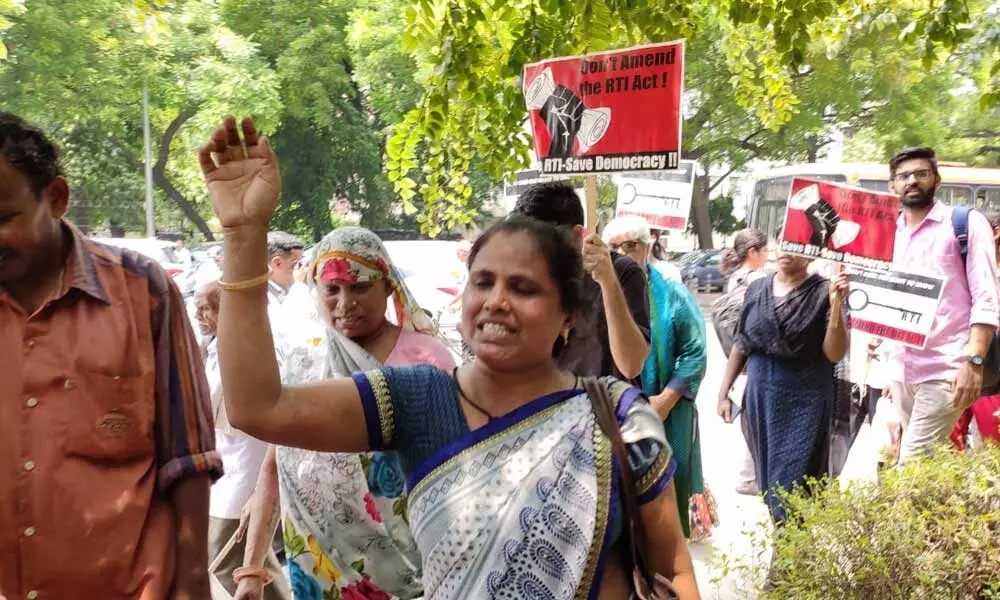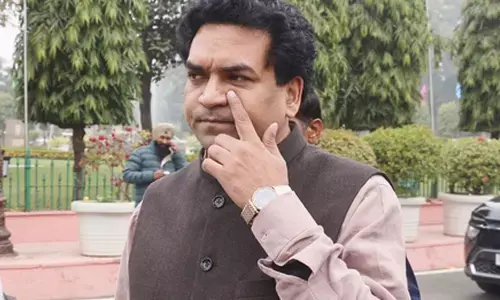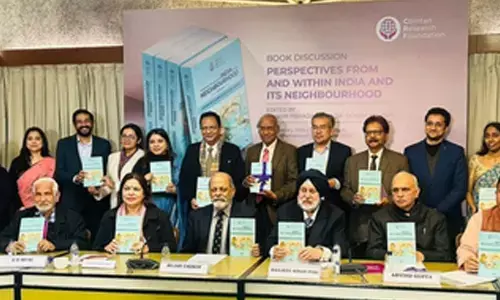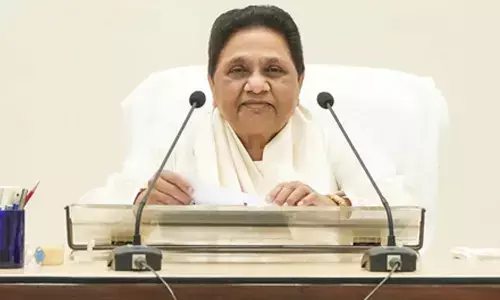CIC, SICs are not rehabilitation centres

CIC, SICs are not rehabilitation centres
For proper, effective and good governance, the transparency in administration is essential
For proper, effective and good governance, the transparency in administration is essential. The RTI should be sincerely promoted and implemented by the governments, who shall appoint only eminent persons in public life with wide knowledge and experience in law, science and technology, social service, management, journalism, mass media or administration and governance.
The makers of Right to Information Act were apprehensive of including politicians in the list of qualified persons for the appointment as Information Commissioner position. The NGO were vehemently demanding such provisions which facilitate the appointment of objective personalities from social service or education or administration. They do not want this position to become another centre for rehabilitating the politicians who could not be accommodated in political offices. It is not an administrative or executive job which can be filled with loyalists of political leaders of ruling party. The lawmakers deliberated a lot on this and listed the services from who the commissioners could be chosen. It passed through the challenge in the Supreme Court twice in Namita Sharma case. The clauses of RTI Act avoid former judges and politicians from the possible list of personalities qualified for holding the position of ICs.
The government of Andhra Pradesh in 2012 has appointed some political disciples as ICs. This became subject matter of litigation. The Governor did not approve all the names recommended by the government. But the government has sent back all the names which it has originally sent. The Governor then has no option. The high-level committee headed by the Chief Minister had recommended four names of for the second time. Civil society organisations had opposed it alleging that SIC has been turned into a "political rehabilitation centre" as all the four had active political connections, including a daughter of former Minister, and two persons who contested elections. Governor sought advice of Advocate General. By that time the Supreme Court has laid down certain norms in Namit Sharma case regarding criteria for selection of ICs. These appointments were later quashed by the AP High Court on the ground that they were politicians and continuing their loyalty to their political parties which cannot allow them to function objectively.
A Division Bench of Andhra Pradesh High Court comprising Chief Justice Kalyan Jyothi Sen Gupta and Justice K C Bhanu while allowing the writ petition observed that 'the procedure followed is not in tune with the letter and spirit of the RTI Act as explained by the Apex Court.' The Bench felt that there was nothing on the record to show that the appointed persons had severed all the political connections which they had prior to the appointment.
Those four Commissioners went in appeal to Supreme Court, which stayed the quash order. They continued in office as long as the matter was pending, and hearing went on adjourned. On the day when it reached the Bench, the Supreme Court found no point to interfere with order of HC and dismissed the appeal. The quashing of appointment was confirmed. The four commissioners were out of office all of a sudden. Some of them were dynamic in and were supporting those who are in genuine need of information. It is unfortunate that they could not continue just because they could not prove their resignation prior to swearing in as the Commissioner. Politicians are not disqualified to become Commissioners. But they should not continue with the parties. But it is not welcome to use this slot to accommodate the loyal followers because alternative posts are not available, which goes against requirement of objective performance as ICs. Only those eminent persons who strived for decades to reform administration through transparency and were involved in genuine social service should be selected as the Commissioners.
Many NGO's and RTI activists all over the country have been against the appointment of bureaucrats as the Information Commissioners at the Central and State Information Commission directly after their superannuation through a process which has been alleged to lack transparency. Some activists have planned to move the Punjab and Haryana High Court against the appointment of outgoing Chief Secretary, Urvashi Gulati as the Information Commissioner. Urvashi Gulati's husband Naresh Gulati is Chief Information Commissioner of the State Information Commission (SIC) while her elder sister, Meenaxi Anand Chaudhry was the Information Commissioner earlier. It has been reported that in the selection committee meeting, a member of the committee and leader of Opposition in the State assembly, Om Prakash Chautala had already demanded that a fresh panel be prepared to appoint the Information Commissioner at SIC. Chautala had reportedly given his dissenting note in the meeting as there was no panel of candidates to select the Information Commissioner.
The governments are intolerant to orders of Information Commissioners for disclosure. Immediately the agents of the ruler's search for the background and past life of the individual Commissioners to find any reason to take revenge. Any defect anywhere could be used for removing the person from the high office of Information Commissioner. There was a professor appointed as Information Commissioner in one of the States. The professor took special leave (called lien) as that would not mean holding an office of profit because there will be no remuneration of any kind is attached to it. But it was considered as continuing profession and the Commissioner was instantly made to demit the office.
Prof M Ansari was an academician chosen as CIC, who gave some significant orders during his tenure. Annapurna Dikshit gave very objective judgments encouraging transparency wherever legally possible. Most of her orders of disclosures came before this author for compliance and enforcement, which could be successfully supervised. Annapurna Dikshit hails from Andhra Pradesh and was associated with UN agencies and one of the highly educated persons in CIC. She gave very significant orders on transparency. Shailesh Gandhi tops the list of the Commissioners who held the flag of transparency flying all through. His judgments are very substantial and strongly on the foundations of law. His orders of disclosures were challenged by RBI and many banks, all of them were rejected by Supreme Court at least two times. It is unfortunate that still RBI is not ready to become fully transparent. Among the State Information Commissioners also, former journalists, advocates, police officers, judicial officers and some administrators did remarkable service. R Dilip Reddy, a journalist, has made significant contribution as State Information Commissioner of combined Andhra Pradesh. The performance of the Commissioners in implementing RTI should be studied by universities with reference to bureaucrat turned Commissioners and non-bureaucrats.
The DoPT has set a healthy precedent by declaring the vacancies and calling for applications from all eligible candidates. The States should emulate this practice which would add legitimacy to the selection process. Questions have been raised about the knowledge and competence of some of the officers who have been appointed as Information Commissioners. The total disposal of RTI appeals in terms of numbers and the quality of orders of some of the Information Commissioners leaves a lot to be desired. Activists have alleged that an officer who has been conservative in his work when in service cannot be expected to lead by example if he is appointed as an Information Commissioner after retirement. Today, most of the Information Commissioners are retired bureaucrats and most of them are above sixty years of age. Many of the Information Commissioners had no exposure to the RTI Act before they became the Information Commissioners. While who is to be appointed as the Information Commissioner is a matter to be left to the Selection Committee, there is an urgent need to ensure that the procedure is transparent and merit rules. The process should be quick enough to fill the vacancy as the number of vacancies is soaring just as the number of appeals is rising. The Information Commissioner is the backbone of the RTI Act, and any dilution of the process will have far reaching negative consequences on good governance.
(The writer is former Central Information Commissioner and Professor at Bennett University)










